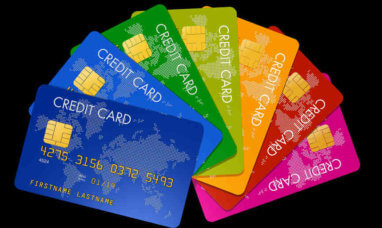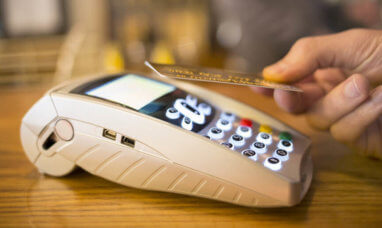For many people, credit cards are a must-have tool for everyday living. They allow you to buy goods and services without the hassle of carrying cash or checks around with you. But there is too much convenience: credit cards also allow thieves to get your financial information and steal your money.
There is a lot of information and many numbers on your credit card. It’s important to know what they mean and how to keep them secure. If you’re wondering what those three digits on your credit card mean, read on to find out more about the security code and why it matters.
What Is a Credit Card Security Code?
A credit card security code, also known as a CVV or CVC code, is a three-digit number printed on the back of your credit card. This number is used to help verify that you have possession of your credit card when making online purchases. If someone has taken possession of your physical card and tries to use it without your permission, this number is your first line of defense.
Security codes appeared on American credit cards in the early 2000s. They were an extra layer of security for credit card holders. Customers were also encouraged to sign up for automatic alerts or text messages that reported when their account was used.
Major card issuers in the United States are now asking for the security code when you make transactions online. This is part of an effort to ensure their customers’ safety. There is always some risk when shopping through third-party retailers, whether on a computer or phone.
What Is a CVV Number? What Is CVN?
The CVV, also known as CVV2 and CVC2 (the “2” stands for the second-generation), is a security code that helps make your transactions more secure. This number, which you can find on the back of your credit card near the signature box, is taken from numbers printed just above and below the embossed credit card number.
What is a CVN number on a credit card? It’s simply your CVV or CVC number. ‘CVN’ is another term used interchangeably with ‘CVV’ or ‘CVC.’ A CVN number is typically three digits long, but it can sometimes contain four-digit numbers for extra security.
Where to Find the Security Code
The security code on your credit card is usually found in the signature box, but some issuers put them in different places. American Express cards have their security code right below the main credit card number on the front of the card.
Visa, MasterCard, and Discover have their security code printed on the back of the card, usually on the right-hand side above the main credit card number.
How to Find the CVV Number on a Visa Debit Card?
Visa debit cards have a long list of extra security features when compared to regular Visa cards. When making online or mobile purchases with your Visa debit card, you may be required to enter the 3-digit security code on the back. You will usually find it on the right side of the signature line on the back of your card.
Best Credit Cards of July 2024
Why Are Security Codes so Important?
Even if your credit card never leaves your sight, there are times when you have to hand it over. When this happens, you may be asked to enter your security code manually at an online retailer (CVV number validation). Or, a cashier may ask for your zip code or phone number. They can use these numbers with malicious software installed on a card reader to extract information from your credit card.
Credit cards with security codes are much harder to hack, which is why they’re essential for everyone to have. If someone tries to use your credit card without permission, the computer will most likely flag the transaction and refuse it.
When shopping online, be wary of the sites you visit. Today, anybody can set up a professional-looking WordPress site. You don’t want to give your credit card information to a website that doesn’t use secure encryption or one that might be collecting your information for malicious purposes and credit card fraud.
How to Protect Your Security Code
One of the easiest ways to protect your credit card security code is to memorize it. You should commit that number to memory and only use that information when you’re making purchases online or over the phone.
If you have trouble remembering numbers, consider writing down your card’s security code and keeping it somewhere safe. This way, you’ll have the information handy even if you forget your card or lose it.
Another way to protect your security code is to sign up for automatic alerts from your credit card issuer. That way, you’ll get a text message or email when somebody tries to use your card without permission.
Finally, it would be best if you used only reputable retailers when shopping online. Even if you have to pay a little more, it’s better to go with a store that uses secure encryption and has been in business for some time. Dealing with a new site or one that doesn’t look professional exposes you to more risk.
What to Do if My CVV Number Rubbed Off?
Most credit card issuers will allow you to generate a new security code if your original one is no longer visible. Issuers are usually pretty good about sending out replacement cards, although they may need time to process the request.
What Is a Safety Tip to Remember With Credit Cards?
If you lose your credit card or have it stolen, it’s important to report the loss as soon as possible. This way, the card can be cut off before someone has the chance to rack up a substantial bill.
You’ll also want to make sure that no one else has access to your information. You should even keep your security code away from your children, so they don’t share it or use it online. Also, always lock up your credit card number when you’re not using it. This will reduce the chance of someone getting unauthorized access to your account.
Security codes are beneficial for credit cards since they protect them from theft and hacking attempts. Customer service is usually very responsive if your security code has been exposed and will send out a replacement card with minimal delay.
Bottom Line
A credit card security code is an extra level of protection for your credit card. It’s important to memorize the number and keep it in a safe place. This way, you can quickly report any lost or stolen credit card incidents.
When applying for a credit card, choose one that offers security codes. You can rest assured that your information will be more secure.
Featured Image: Twenty20








